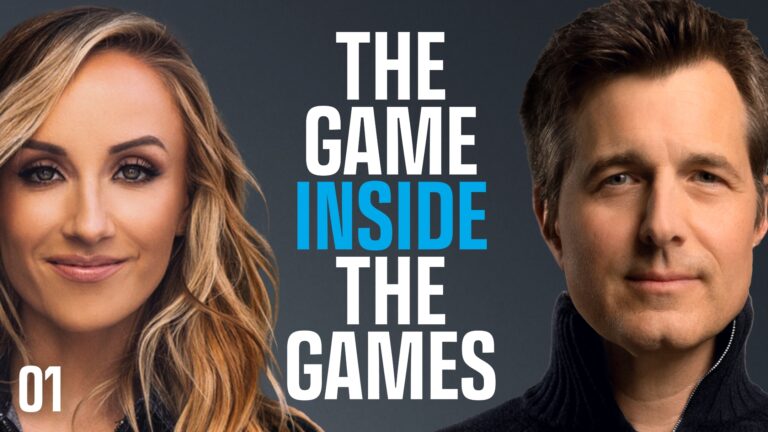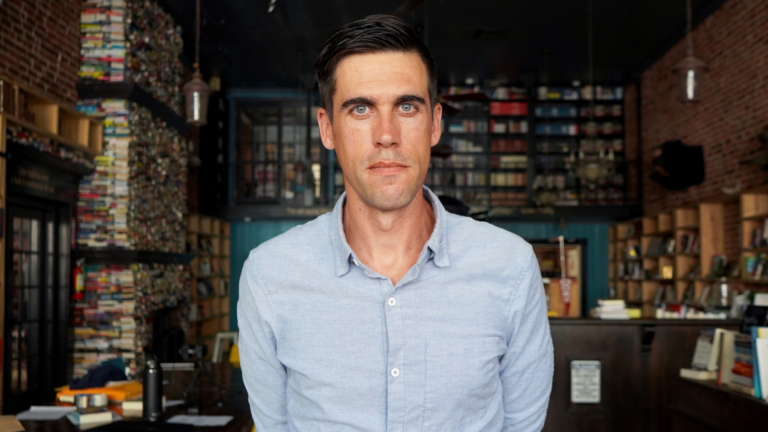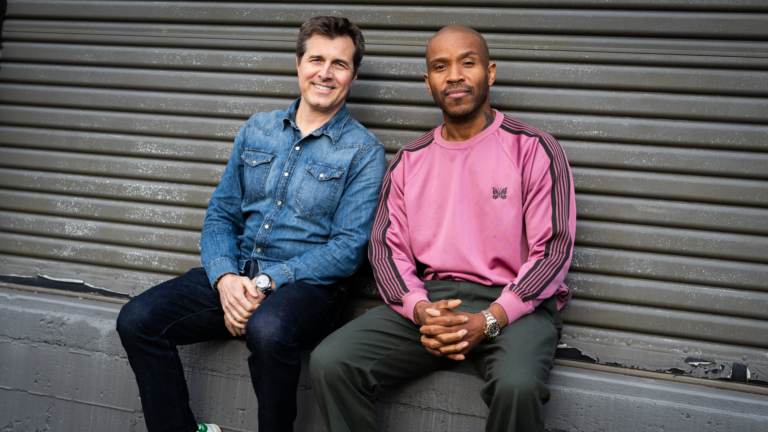This week’s conversation is with Paul Assaiante, one of the most decorated coaches in college sports history.
For those unfamiliar, Paul is a legend – he is a two-time Olympic coach of the year, the “winningest coach in college sports history”, an inductee of the U.S. Squash Hall of Fame, and has won 17 NCAA championship titles at Trinity College where he is still the head coach of the Men’s Squash team today.
You might also recognize Paul’s name from his first appearance on Finding Mastery back in 2016 – that’s episode #47 if you want to check it out.
Paul has spent more than four decades coaching, motivating, and mentoring top athletes from around the world – and with how rapidly our culture is shifting, I was excited to have him back on to explore some of the changes he has observed over the last several years.
The wisdom Paul displays is abundant, and I hope you’ll find as much value in this conversation as I did. We discuss how to prepare our children to succeed in a competitive world, the importance of failure, what it really means to win, and so much more.
“You cannot exhibit bravery if you aren’t first afraid. It’s the same thing with resilience. You cannot demonstrate resilience if you haven’t first failed.”
In This Episode:
A dramatic shift in young people (and their parents)
I’ve seen a dramatic shift in the young people that are coming to our doors these days. And in this regard, they look more put together than they’ve ever looked before. They present beautifully, they’re polished. And the first time they face adversity, they fall into a million pieces, because they haven’t learned that it’s okay to fail. They haven’t learned that actually, losing is the playground of success. They haven’t learned the value of that. As I tell my children, you cannot exhibit bravery if you aren’t first afraid. And it’s the same thing with resilience. You cannot demonstrate resilience if you haven’t first failed. And this is a tough life. The world is not kind. You’ve got to be able to get off the bat. Knock down 10 times, get up 11 times. But we’re doing everything we can to make sure that they don’t fail. And then we wonder why we’re seeing more cheating today than we’ve ever seen before on the college level, because failure is not acceptable.
The ROI mindset in youth sport
We hear this ROI now in young sports in society. People are making huge investments in time, emotion, and money. Not just in athletics. If you played the oboe or if you were a dancer or whatever it was. And it’s very much the case, not see their child or we see our children as investments, but in fact the process does feel like an investment. And as a result, we become very disappointed when they’re not reaching what we thought they might reach it.
Loss of purpose
I was on a panel with one of the eminent sports psychologists in the world. It blew my mind. He got up and he had a blackboard and there were about 150 parents in the audience. And he said, “Okay, the big three, when your child was born, what were the big three that you were hoping for your child?” That my child is safe, that my child is healthy?” “Okay, great. Now you decided to put your child into an extracurricular activity. What were the big three?” “That my child learns confidence through participating in an activity. That they learned how to play nice in the sandbox,” whatever the big three were. And then he looked at the crowd and he said, “So when you look at those six things, where in the journey did you collectively lose your minds?”
Preparation should be hard
So first of all, I believe in the Japanese philosophy, which is that you cry in practice and you laugh in competition. So I want to make sure that the young people really prepare. You’re going into this contest, and it’s going to be a measure of, one – how well you prepared. Two, how well you managed your emotions during the contest. And three, did you make good in-game adjustments? And lastly, who was the better player or the better team on that day? And there is some really powerful messaging in just being able to look across the line and say, “You were better than me today, collectively or individually, or you managed the moment better. Or perhaps it meant more to you than it meant to me.” But these are all bricks in the life in the house that you are building over and over. Every opportunity is another brick, another brick, another brick. And it’s all a part of the learning process. And the fear of failure prevents us from learning.
Providing feedback
Once competition is ended, that is absolutely the wrong time to do any teaching. The internal temperature is up. The receptivity level is low. There’s nothing to be accomplished by going up to a child after they’ve just… or even in the business world, somebody just blew a deal. I consult for a hedge fund. Somebody just lost $100 million. Now’s not the time to talk to that person about what we could have done better. I learned that the hard way. The time to do that is later when things have calmed down, when they’re in a better head space. Even better if you filmed it the next day or that night, you can sit down with them and say, “This is what I saw. This is what you can see. You see what’s going on here?” Then learning can happen. Celebrate it. This didn’t go well. What can we do differently next time? And I find that to be a wonderful process for all human behavior.
Buffering thought and action
We talked to the young people all the time about, “Have you ever been on the road and saw somebody in road rage there?” The period of time between thought and action is gone. You cannot perform in a state of road rage. You cannot perform emotionally. Because if in-game adjustments is important to performance, then emotion blocks your ability to be cognizant of what’s going on.
The concrete balloon
To me, I think we tend to approach this upside down. And in my opinion, we tend to think, “I’m going to practice for something. And then I hope in the heat of the moment, I’m able to replicate the calm state that I was in during my preparation.” I think that is absolutely impossible. The gall way thinking of just zen, being in the zone. I look at it as a balloon. And the balloon is your mind. And when you’re in competition, the thoughts are coming at you like pins. They’re going to prick the balloon. What I like to do is to say, “All right, let’s fill that balloon with cement.” Let’s just fill that balloon with what it is you’re trying to accomplish. How are you feeling in the moment? Just be impervious. So what I try to do in preparation is I try to make it really, really tough. And then on match day or game day, I try to take the pressure off people. And I learned this from Michael Krzyzewski at West Point, by the way.
Body language and empathy
When I was writing my book Run to the Roar, one of the contributors to the book was Billie Jean King. And I will never forget this, and I tell this to companies all the time. She said to me, “Body language will tell you everything you need to know.” To me, the most important quality that a leader can have is empathy. You truly need to be able to put yourself on the other side of the desk and understand where that person is coming from. And once you get to know that person well, I mean really know where they’re coming from, then the body language will tell you exactly where they are. You can look in their eyes when they walk in your office. You can tell from their shoulders, they’re struggling. And that’s an opportunity to try to ask them gently, “What’s going on? How can I help you?” Now trust is a meal served with a teaspoon. It takes time.
Sport is not war
I coached at West Point for 13 years. So I know that on the battlefield, failure is death. And fortunately, I’ve seen a couple of rupture Achilles tendons and I’ve seen a couple of people have heart episodes in competition, but I’ve never seen anybody die on the fields. And in addition to that, I have seen people in the business world get themselves so worked up, that their perspective is skewed and the pressure is just, it’s unfair. The self-imposed agony that they’re going into before they ever get there is just too much. This isn’t war. This has nothing to do with the battle. Our team here, they love to watch the movie 300 the day before the big match. Nice. There’s not a wall of heads here. We’re not in that situation. You’re going to go out there and you’re going to give it everything you have. And you’re going to do that out of respect for yourself and your team, and out of respect for your opponent. If you can beat that person and beat them as badly as you can, that’s respect. But no, it’s not a battlefield.
Going from the individual to a team mindset
Actually, the way I do it is by cheating. We bring in people from around the world, and we have 11 different countries in this program this year. And some of them are former world, certainly former national champions. Some have played and made it far in world championships. They’ve done very well as individuals in this sport. And when they come here, I teach them a brand new activity. I teach them team. And that’s a hard buy-in. You’ve got a boy from Lahore, Pakistan sitting next to a young man from Mumbai, India. Their parents are not even talking to each other. And I’m trying to convince these boys that this is your brother, he is now your brother. And you’ve got to have his back, and you have to care as much about him as you care about your own accomplishments. And I do this over, and over, and over.
His proudest moment
I would honestly say my personally proudest national final was when we lost to Princeton 5-4. Because after the finals, both teams line up, and they walk across the courts, and they shake hands. And during the ceremony I looked at my players, and they were all standing there, and they were all crying, snot running down their noses. They had gone all in for themselves and for each other. There was no holding back, tipping the toe in water. They were fully, that was a unit. And that was a great accomplishment to get them there. So you never get there. It’s always a work in progress.
Loving the “hard stuff”
I have felt tremendous collective sadness. I’ve seen confusion. But I’ve never seen a team angry. Because what I want them to feel is the celebration of the moment. Everyone goes into competition hoping that you’re going to win the football game, 60-0. Well guess what? It’s not going to happen. So you’ve got to have the expectation that this is going to be brutal. It’s going to be a rollercoaster, we’re going to be up, we’re going to be down. There’s going to be mistakes on the field. So you need to expect it to be very, very difficult. And what I encourage our people to do when it’s really tough, it’s a tiebreaker. I want them to look up at the ceiling and say, “I love this stuff. I love this stuff. I wanted this moment. I wanted it to be hard.”
Successes vs. failures
I define success by how well did you prepare for the activity? How did you do within game adjustments? How did you handle your emotions? To me, that’s success. Because it’s part of the educational process. To me, failure is reaching a state of emotion or thought where you can accept not trying. The only thing I cannot accept is a person not being all in…If you want to fail, focus on the scoreboard. Guaranteed. I’ve never seen a player or in any activity running around with a score clicker. It’s the meat of what you’re doing. It’s the nuts and bolts of the activity. It’s how engaged are you doing? What are you doing? What are your adjustments? The scoreboard takes care of itself.
Run to the Roar
In Africa, lions hunt in packs. They take with them the oldest female of the pride. She’s usually toothless, old, blind, cannot catch her own food, very much like me. But she has the deepest roar. And what they do is they position the old lioness in the middle of the field facing the bush,. All of the other lionesses, and it’s the lionesses that do the hunting, all of the other lionesses are hiding in the bush. So the prey is between the old lady and the bush. And when she roars, the prey run away from the roar to their death. So the answer is when you are faced with something that makes you uneasy, go at it. Go right at it. What you’re going to find more often than not is it’s a toothless old lady. You’re going to find more often than not that the monster, the hairy thing you have in your mind, insurmountable crisis is really not what you think it is. Go at it. Absolutely.



